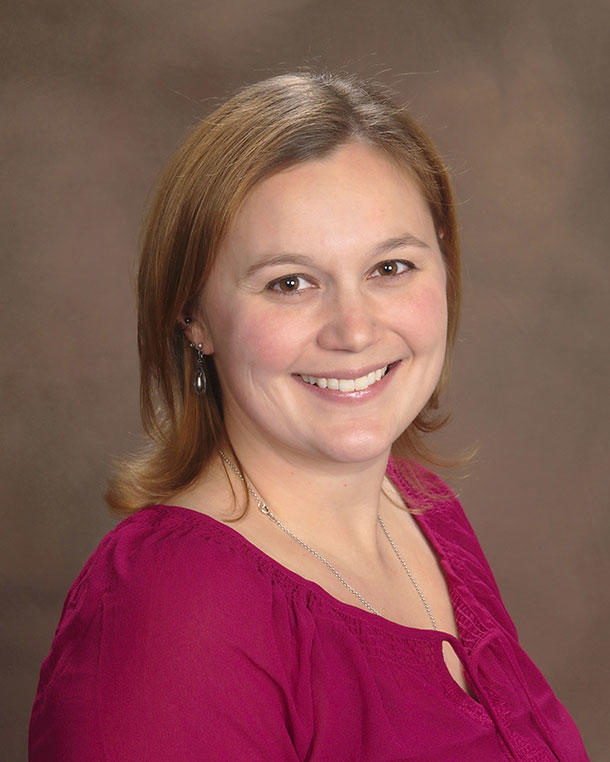
Emily Vogtmann, Ph.D., M.P.H.
NCI Shady Grove | Room 6E428
Biography
Emily Vogtmann received her B.S. in biochemistry and molecular biology and B.A. in Spanish from Michigan State University, East Lansing, in 2005. She went on to receive an M.P.H. in international health epidemiology from the University of Michigan, Ann Arbor, in 2009, where she investigated human papillomavirus and cervical cancer awareness and mortality trends in Mexico. Dr. Vogtmann completed a Ph.D. in epidemiology in 2013 at the University of Alabama at Birmingham. Her dissertation focused on cruciferous vegetable intake, GST polymorphisms, and colorectal cancer among men in Shanghai, China, completed in collaboration with the Shanghai Cancer Institute and Vanderbilt University Medical Center, Nashville, TN.
Dr. Vogtmann joined DCEG as a Cancer Prevention Fellow in the Metabolic Epidemiology Branch in August 2013 and was promoted to research fellow in June 2016. She was appointed to the position of Earl Stadtman Investigator in 2018. Dr. Vogtmann has received a number of awards for her work, including the NIH and DCEG Fellows’ Award for Research Excellence and the NCI Director’s Innovation Award.
Research Interests
Dr. Vogtmann’s research focuses on: the association between the human microbiome and cancer risk; and evaluation of methods for collection, storage, and processing of samples and data for study of the human microbiome.
Human Microbiome and Cancer Risk
Within the body, microbial cells—bacteria, viruses, fungi, etc.—outnumber human cells and are known to play both pathogenic and commensal roles. Nevertheless, the mechanistic contributions of the human microbiome to cancer and other diseases remain poorly characterized. Dr. Vogtmann applies cutting-edge microbial techniques in epidemiologic studies to investigate the role of the microbiome in cancer risk and progression. To perform this research, she currently is utilizing oral wash specimens (originally collected as a source of DNA for study of the human genome) from multiple large cohort studies to determine the prospective association between the oral microbiome and cancer risk. She is also actively collaborating with investigators to include fecal collections in these large cohorts in order to be able to study the prospective association between the fecal microbiome and cancer risk.
Methods for Microbiome Studies
To conduct high-quality, large-scale epidemiologic studies of the human microbiome and to facilitate future data pooling and meta-analyses, Dr. Vogtmann also focuses on optimizing and validating methods for sample collection, storage, DNA extraction, sequencing, bioinformatics, and statistical analysis. In particular, she is evaluating methods to characterize the fungal component of the microbiome so its relationship to cancer risk can be considered.
Information for Journalists
To request an interview with a DCEG investigator, please complete this form: Request For Comment | HHS.gov.
